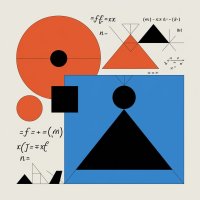
advancing scientific discovery through collaboration
These are good steps to take when considering collaboration:
ORCID
1. Register and get an ORCID, this is essential for research work
2. Now You are in control of your ORCID Record
3. Explore the Octopus Author Guide
4. Explore the Publication Types and FAQ
5. Select which Publication Type suits you presently
6. Start by Publishing something core, to establish provenance and authorship
PUBLICATION TYPES
Below are the eight publication types. You should select the one which matches where you are in the research process.
Research problem
A 'research problem' publication defines a research problem or question. You will need to explain what is known so far about the problem, rather like the 'introduction' to a traditional paper.
Rationale/Hypothesis:
A 'rationale/hypothesis' publication sets out the theoretical basis for a potential solution, or partial solution, to the 'research problem' it is linked to. In some fields a formal hypothesis is appropriate, in other fields it might be a description of an approach that might be taken.
Method:
A 'method' publication is a detailed description of ways of testing a hypothesis, or carrying out a theoretical rationale. You can include links to sites such as protocols.io to give more detail of the method if that would be helpful to readers.
Results:
A 'results' publication comprises raw data or summarised results collected according to an existing published 'method'. It should describe the data or results themselves, without any analysis. It should provide details of the exact conditions under which the method was carried out and anything needed for an analysis or interpretation of the results. You can include links to the raw data files if they are in a specialist repository. Octopus is not a data repository itself.
Analysis:
An 'analysis' publication describes manipulations of results to help draw conclusions from them. For example, thematic or statistical analysis.
Interpretation:
An 'interpretation' publication describes conclusions drawn from an 'analysis' of results.
Real World Application:
A 'real world application' publication describes how findings might have (or have had) an impact in the real world. This might be through a practical or policy application, and would be the appropriate publication type for case studies.
Peer Review:
A 'peer review' publication is open and post-publication. It should be a carefully considered and constructive critique of an existing publication by someone else. Your review should help other readers assess the publication, and should be written in the same style as any other kind of publication, with relevant references. Authors may reversion publications in the light of reviews.
See FAQ for more of the following:
Does each publication get a DOI?
Yes, Octopus mints a DataCite DOI for each new publication.
Is everything on Octopus open access?
Yes. All research published on Octopus is made available under an open access license. Authors retain the copyright to their work.
Anyone can read publications without creating an account, but please check the license terms before you share, adapt, or build upon another's work.
The platform is published under the open source license GPLv3. The platform code is available via our public Github repository. We invite any interested parties to participate in the ongoing development of the service and its features. See our terms page for more information.
Which copyright license is used for Octopus publication?
All Octopus publications have a CC-BY 4.0 license. For more information, please visit the Creative Commons website. This is to ensure that Octopus publications fulfil the Open Access criteria of all funders.
Will people steal my idea/data if I publish it?
Publishing on Octopus establishes your priority instantly to protect you against 'scooping'. Once published your work can't be stolen. For example, you might publish a hypothesis which is later supported by data. If that data is collected by you, someone else, or many people, you still get credit for the hypothesis as the person who published it.
Can I publish in both Octopus and a journal?
Octopus is designed to sit alongside journals and other dissemination outlets, allowing these channels to specialise in delivering key findings to their audiences. Octopus acts like a 'patent office' to record who has done what and when, and ensure the quality, integrity, and accessibility of all primary research.
Publishing work on Octopus shouldn't be barrier to publishing a traditional paper, just as publishing a preprint isn't. However, journal policies differ in how they treat material that has been previously published. Sherpa allows you to check the preprint policy of any journal. If in doubt, please check with the journal before publishing on Octopus.
Royal Society Open Science has a specific partnership with Octopus, publishing manuscripts based on work that has been previously recorded on Octopus. To learn more about publishing with Royal Society Open Science, please visit their information for authors page.
---
We propose researchers work smartly by using open science platforms like OCTOPUS
Collaborations
The arrangements between parties would need to be forged by those parties. Co-authorships, financial dispensations, licensing etc, are typical aspects falling to the parties involved. The involvement by itsmartt and the STEAM Engine is fundamentally focused on Science Discovery. For this cognitive work, we would be co-authors in the initial work. Our licence is far more restrictive, to ensure control remains with the Researcher under the ORCID and Octopus frameworks. We use ORCID and Octopus for any work we do as well. Our relationship with researchers using the STEAM approach is always conducted under NDA, to ensure confidentiality and IP protection both ways.
Note: Tawk.to (bottom left on screen) is deployed on this site expressly for user-convenience. It has an AI built-in to assist with finding equations and science domains in this site. Here is a review
Calling for research collaborators

The methodolgy used in scientific discovery, has resulted in many unique and potentially valuable equations. Of these 16 of them have been taken through the initial research process and hold up under scrutiny. These are available for further research, in a collaborative format. The goal would be to validate/invalidate these findings.
Discovered Equations with Proofs:
Resonant Quantum Dynamics Proof - 2 July
Action Integral for Quantum Gravity Proof - 3 July 2024
Space-Time Link Proof - 5 July
https://doi.org/10.57874/ef0a-pa30
Quantum Error Correction (QEC) Equations Proof - 9 July
QAOA-Ansatz State Proof - 16 July
Ising Model Hamiltonian Proof - 18 July
Variant of Einstein Field Equations-Incomplete Proof - 21 July
Telomere Lengthening Proof - 23 July
Logistic Growth Equation Proof - 24 July
Dark Energy Density Proof - 25 July (see on Research page)
https://doi.org/10.57874/29nw-n835
Amplituhedron Vector (54.47, 33.44) Proof - 25 July
Darcy's Law for Fluid Flow in Porous Media Proof - 26 July
Senolytics and Senesence Research Paper Proof - 28 July
High- (T_c ) Superconductivity in Ca-Doped YBCO - Enhanced Critical Temperature via Strain Engineering - Proof 31 July
Superfluid Density Investigation Proof - 31 July
Quantum-Enhanced Effective Permeability Proof - 8 August
Mitigating Decoherence Proof - 8 September

The many new equations - Discovered by Claude 3.5 Sonnet, need to be taken through the full research process using STEAM methodology, or researchers are invited to run their own inquiry, and use their own methodology. They could use AI platforms like Openai GPT4o, Preview-o1,and Wolfram Cloud Compute, for calculations and initial proofs. The Discovery process can use other AI models, if they are as good or better than Claude 3.5 Sonnet.
S·T·E·A·M EQUATION DISCOVERY
- AI and ML - 85 equations
- Quantum Computing - 170 equations
- Biology and Life Sciences - 145 equations
- Physics - 230 equations
- Quantum Gravity - 45 equations
- Mathematics - 20 equations
- Material Science - 75 equations
- Longevity and Aging - 230 equations
- Various Experimental equations - 61 equations
- New Discovered equations - 16 (with proofs)
Total NUMBER OF EQUATIONS = 1111
Status at 21 Nov 2024
